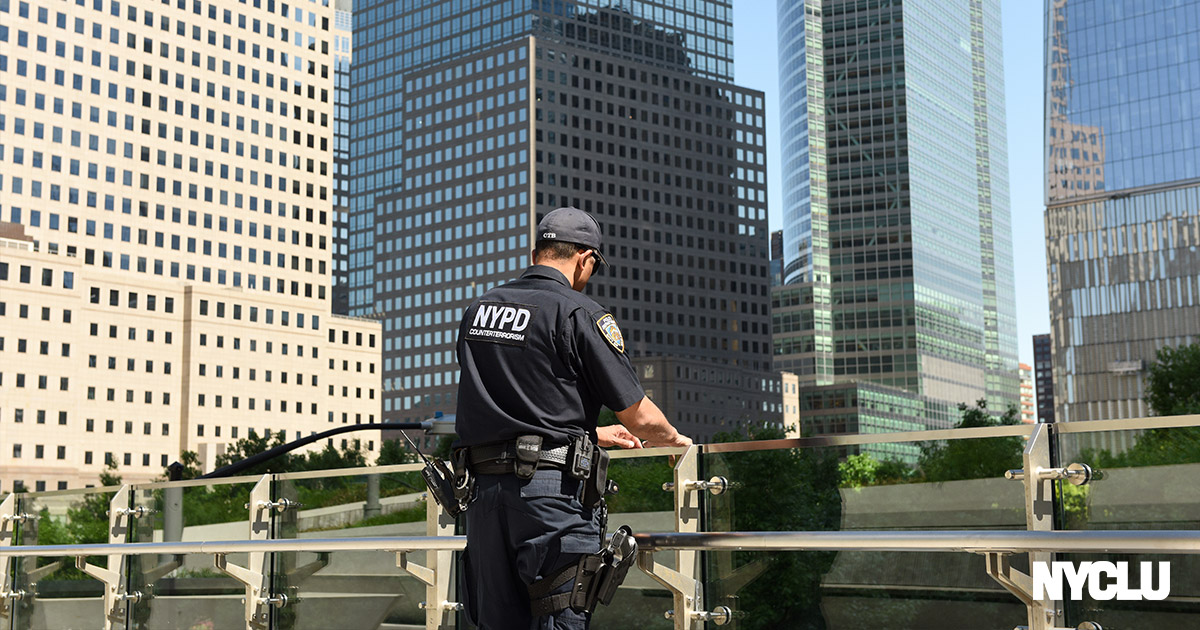Pro-Palestinian Campus Protests Shouldn’t be Snuffed Out by Police
Civil Liberties Union

One of the psychological impacts of the coronavirus is that it makes us scared of almost everyone we see. A polite stranger holding the door is transformed, in the time of COVID-19, into a possible vector for disease that should be avoided.
It is in this context that Gov. Cuomo announced that police officers throughout the state can issue $1,000 fines for people accused of not social distancing.
It might be tempting for some to search for a law enforcement solution to the pandemic, especially because the disease puts all of our safety at risk, and makes us frightened of each other. In an ideal world, we’d have a team of health experts responsible for making sure people are keeping themselves and others safe. While recognizing that’s not the reality, we should always remember that police officers are not health care workers and they should not be on the front lines of solving this crisis. In some instances, they can make things worse.
Take, for example, reports that NYPD officers are continuing “street sweeps” of people who are homeless, forcing them to pick up their belongings and move elsewhere. It’s in everyone’s interest that all people are practicing social distancing, but street sweeps aren’t the answer.
As Josh Dean of the homeless advocacy group Human-NYC told The City, “What they’re doing is what the [Centers for Disease Control] is advising not to do, which is don’t move people around,” Dean said. “The more you move people around, the more you move the disease around.”
There is also concern that the NYPD’s past practice of threatening people who are homeless with a summons, unless they go to a shelter, could further spread COVID-19. In many homeless shelters, people sleep close enough to each other “to hold hands,” according to the New York Times. At least 23 people living in New York City shelters have died of the virus.
This can’t be business as usual for police officers.
Like homeless shelters, jails and prisons are also breeding grounds for COVID-19. At least three people have died from the disease after being detained at Rikers. Hundreds of staff and people incarcerated at jails and prisons across the state have tested positive for coronavirus, as the death toll in these facilities continues to climb.
Since jails are hotbeds for COVID-19, police should be doing everything possible to avoid putting people in them. But just this month, there was a report that police arrested three people in Brooklyn after they allegedly “failed to maintain social distancing.”
Instead of officers trying to understand and address the reasons why someone might have for not social distancing or using their discretion to ensure less punitive means of compliance with the guidelines, three people were charged with obstructing governmental administration, unlawful assembly, and disorderly conduct.
One of the people who was arrested told the Intercept that she was in a parking lot with her boyfriend when police told them it was “time to leave.” Before they could follow those orders, the woman said police grabbed her boyfriend and arrested both of them. Then she said she spent the next 36 hours in a jail cell with two dozen other women before she was released.
These are the types of encounters we worry about when we hear NYPD Police Commissioner Dermot Shea’s assertion that he has no intention of reducing arrests during the pandemic.
Much like police departments across the state, the NYPD has been stubbornly wedded to broken windows policing, in which officers aggressively enforce laws against minor infractions. This tactic has always inflicted unnecessary harm, particularly on communities of color, but if there was ever a time to abandon broken windows, it’s now.
Not only has the NYPD not disavowed low-level arrests, but the department has been very public about where it stands. That makes it harder for people to see officers as public health advocates, rather than authorities looking for reasons to arrest people. This may increase fear and reduce trust in the police.
We cannot arrest our way out of this crisis. In fact, the virus spreads through exactly the kind of close person-to-person contact that arrests require, so committing a minor offense could actually cost people their lives.
This can’t be business as usual for police officers. Law enforcement must re-evaluate how they’re interacting with the public, given the grave harms of the virus.
Police departments should limit their involvement in efforts to curtail COVID-19, and at the very least, they should avoid exacerbating it. Bringing people into the criminal system at this moment is the worst possible outcome for both civil liberties and public health.